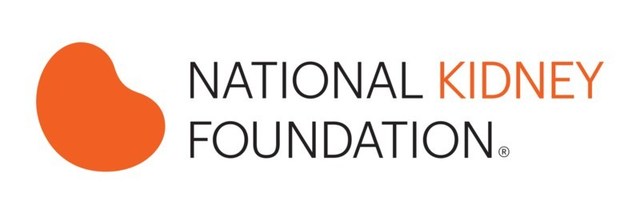Nephrologist and researcher Susan Hedayati, MD, MHSc, will be honored by the National Kidney Foundation with the prestigious Shaul G. Massry Distinguished Lecture at one of the nation’s most regarded gatherings of kidney professionals in 2023 for her discoveries in kidney disease.
NEW YORK, Nov. 29, 2022 /PRNewswire/ -- Nephrologist and researcher Susan Hedayati, MD, MHSc, will be honored by the National Kidney Foundation (NKF) with the prestigious Shaul G. Massry Distinguished Lecture at one of the nation's most regarded gatherings of kidney professionals in 2023 for her discoveries in kidney disease.
Each year NKF considers the work of hundreds of specialists in the field of Nephrology and selects among them those who most exemplify the relentless efforts of NKF to enhance the lives of patients through action, education, and accelerating change. Since 1996, NKF has been presenting the Shaul G. Massry Distinguished Lecture in honor of Dr. Massry for his scientific achievements and contributions to kidney health care. The award will be presented during the annual gathering of clinicians and kidney health professionals at the NKF 2023 Spring Clinical Meetings, which will be held in April 11-15, in Austin, TX.
Dr. Hedayati serves as the Associate Vice Chair for Research in the Department of Internal Medicine, the Director for Clinical and Translational Research in Nephrology, and the Co-Director of the O'Brien Kidney Clinical and Translational Core at the University of Texas Southwestern Medical Center.
"I am truly humbled to be the recipient of the Shaul G. Massry Award," Dr. Hedayati said. "There are so many nephrologists across the world who deserve this award. So, I am honored to receive it on behalf of all of us who work diligently every day to improve patient's lives and train our next generation of nephrology research investigators and clinicians who will, in turn, touch the lives of so many more patients and trainees."
Dr. Hedayati is a National Institutes of Health (NIH) R01-funded independent clinical investigator and nephrologist. She received her medical degree from George Washington University and completed both her residency training in internal medicine and nephrology fellowship at Duke University Medical Center. During her nephrology fellowship, she also completed coursework that culminated in a master's degree in Clinical Sciences and Biostatistics from Duke.
"Sue is a role model to students, nephrologists, and investigators because she is dedicated to finding pathways to advance patients' health and improve the outcomes for all kidney patients," said NKF President Sylvia E. Rosas, MD, MSCE. "This award is well deserved. She has performed not only observational epidemiological studies but significant clinical trials that have improved the lives of individuals with kidney disease. The impact of Sue's mentoring on the future of nephrology is truly hard to measure."
Her research program involves identifying non-traditional risk factors for cardiovascular disease and cardiorenal syndrome in patients with kidney diseases, as well as investigating effective treatments for depression in patients with chronic kidney disease and end-stage kidney disease. In addition to her National Institute of Diabetes and Digestive and Kidney Diseases (NIDDK) funding, she is the recipient of an institutional National Heart, Lung, and Blood Institute (NHLBI) R38 residency training grant, the UT-STARR program, as well as the Funds to Retain Clinical Scientists Affected by COVID-19 (UT-FOCUS program) awarded by the Doris Duke Foundation and American Heart Association. As a testament to her years of effective mentoring of numerous medical students, residents, NIH T32 nephrology fellows, and junior faculty, she received the UT Southwestern Medical Center (UTSW) 2020 Leaders in Clinical Excellence Mentoring Award.
"I love what I do, which includes not only caring for patients at a large safety-net county academic hospital, but also mentoring medical students, residents, fellows, and early faculty in both clinical care and research," Dr. Hedayati said. "I am very grateful to have the opportunity to serve in this way."
For the past 31 years, nephrology healthcare professionals from across the country have come to NKF's Spring Clinical Meetings to learn about the newest developments related to all aspects of nephrology practice; network with colleagues; and present their research findings. The NKF Spring Clinical Meetings are designed for meaningful change in the multidisciplinary healthcare teams' skills, performance, and patient health outcomes. It is the only conference of its kind that focuses on translating science into practice for the entire healthcare team.
In the United States, 37 million adults are estimated to have kidney disease, also known as chronic kidney disease (CKD)—and approximately 90 percent don't know they have it. 1 in 3 adults in the U.S. are at risk for kidney disease. Risk factors for kidney disease include: diabetes, high blood pressure, heart disease, obesity, and family history. People of Black or African American, Hispanic or Latino, American Indian or Alaska Native, Asian American, or Native Hawaiian or Other Pacific Islander descent are at increased risk for developing the disease. Black or African American people are more than 4 times as likely as White Americans to have kidney failure. Hispanics or Latinos are 1.3 times more likely than non-Hispanics to have kidney failure.
Healthcare professionals can join NKF to receive access to tools and resources for both patients and professionals, discounts on professional education, and access to a network of thousands of individuals who treat patients with kidney disease.
The National Kidney Foundation (NKF) is the largest, most comprehensive, and longstanding patient-centric organization dedicated to the awareness, prevention, and treatment of kidney disease in the U.S. For more information about NKF, visit www.kidney.org.
![]() View original content to download multimedia:https://www.prnewswire.com/news-releases/the-national-kidney-foundation-honors-researcher-for-breakthroughs-in-kidney-disease-301689426.html
View original content to download multimedia:https://www.prnewswire.com/news-releases/the-national-kidney-foundation-honors-researcher-for-breakthroughs-in-kidney-disease-301689426.html
SOURCE The National Kidney Foundation





